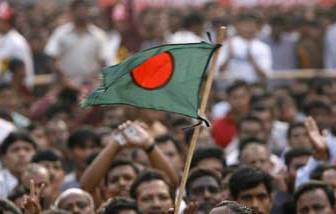In a significant move, Bangladesh’s interim government, headed by Nobel laureate Muhammad Yunus, has lifted the ban on Jamaat-e-Islami, the country’s largest Muslim political party. The ban, originally imposed under an antiterrorism law during the final days of former Prime Minister Sheikh Hasina’s administration, has been revoked by the Ministry of Home Affairs.
The government issued a gazette notification on Wednesday, stating that there was “no specific evidence of involvement of Jamaat” and its affiliates in terrorist activities, thereby justifying the decision to remove the ban. The Jamaat-e-Islami party had previously denied any allegations of inciting violence during the student uprising that ultimately led to Sheikh Hasina’s resignation, calling the ban “illegal, extrajudicial, and unconstitutional.”
Controversial Ban and Its Implications
The ban on Jamaat-e-Islami, which has millions of supporters, was initially enforced in 2013 when the High Court ruled that the party’s charter violated the secular constitution of Bangladesh, a nation of 170 million people. This ruling prevented the party from contesting the elections held in 2014, 2018, and again in January this year. These elections saw Sheikh Hasina, 76, secure her fifth term as Prime Minister in widely criticized polls that lacked credible opposition.
Hasina’s government enforced the ban on August 1, just four days before she was ousted from power following weeks of intense student-led protests. During these protests, students rallied against a controversial quota system for government jobs. Following her ousting, Hasina fled to India by helicopter.
Critics, including Mirza Fakhrul Islam Alamgir, the secretary-general of the Bangladesh Nationalist Party, accused Hasina’s administration of using the ban to distract from a harsh crackdown on dissent, which reportedly resulted in the deaths of more than 600 people, according to United Nations estimates.
Legal Battles Ahead
Following the lifting of the ban, Jamaat-e-Islami plans to take further legal action. Shishir Monir, a lawyer representing the party, announced that they will file a petition at the Supreme Court early next week, seeking the restoration of the party’s registration with the Bangladesh Election Commission. This would enable Jamaat-e-Islami to participate in future elections.
Historical Context
Jamaat-e-Islami, founded in 1941 during British colonial rule, has a controversial history, particularly for its opposition to the creation of Bangladesh during the 1971 war of independence from Pakistan. Since 2013, many of the party’s senior leaders have been executed or imprisoned after being convicted of crimes against humanity, including killings, abductions, and rapes during the 1971 conflict.
Bangladesh gained independence on December 16, 1971, with crucial support from neighboring India.



